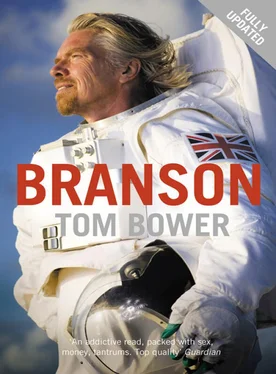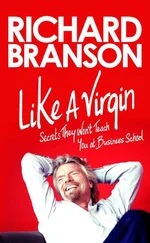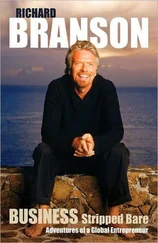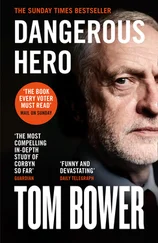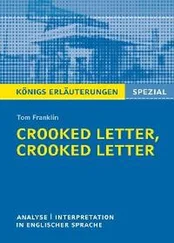Journalists dispatched by middle-aged Fleet Street editors to report and explain the student revolt, searched for a spokesman. Branson was discovered in Albion Street. Stepping over rubbish, unsold copies of Student magazine and couples sleeping on the floor, one grateful reporter bestowed credibility on his interviewee by lazily repeating Branson’s self-description as a ‘student leader’ and faithfully quoting his utterances in a London newspaper.
Mention as a ‘student leader’ in one newspaper brought invitations to appear on television and feature in Vogue magazine as a representative of Britain’s student rebellion. To enhance his apparent importance for visiting journalists, he arranged for friends to telephone the house from call boxes, creating an illusion of successful activity. Journalists, Branson realised, were unlikely to challenge his exaggerated claims for Student ’s success or his personal importance. On the contrary, the more outrageous his assertions the better. A single pose alongside Tariq Ali during the demonstration had taught Branson the value of hype.
At eighteen Branson possessed star-quality. His jocular celebrity persuaded the unambitious living in his basement and seeking justification for their fun-seeking lifestyle to accept his argument for their common goals. Their dependence upon him was gratifying to Branson but also troubling. Student ’s circulation remained low and static. It was his first taste of a recurring predicament throughout his life: a cash crisis. His solution was to borrow an idea.
To save Student he imitated Private Eye. Regularly, the satirical magazine promoted its Christmas edition by attaching a record on to its cover. Branson’s idea for his magazine’s issue in spring 1969 was inspired. In October 1968, he approached Derek Taylor, the Beatles’ press officer, requesting an interview and a special song recorded by John Lennon dedicated to Britain’s students. Ingratiating himself by focusing polite charm on his targets was Branson’s particular skill and Taylor agreed. But by early December, after commissioning an expensive cover design and placing a large printing order, the record had still not materialised. Sitting in Taylor’s office, helping him address Christmas cards, Branson pressed for delivery. Taylor, proud of fulfilling his pledges, had a problem. Lennon had been prosecuted for the possession of cannabis and Yoko Ono, his girlfriend, had just miscarried. Traumatised, the couple had isolated themselves in their house outside London. Impulsively, Taylor scribbled on a card, ‘Trust me, Derek.’ Carefully, Branson pocketed the card.
At the beginning of January 1969, the promised record had not been delivered. Branson’s own despair deprived him of any sympathy for Lennon. After consulting his father, he issued his first writ: Connaught Publications v. John and Yoko Lennon and Derek Taylor. The official document, alleging breach of contract, was served on Taylor in the street outside his office. Listed as proof of an agreement was Taylor’s scribble on the Christmas card. The writ established that sentiment would never interfere with Branson’s urge to earn money. His verbal awkwardness, his long hair and his broken glasses might have suggested a hapless, easy-going hippie but they were just the natural props in a well-marketed performance. At dinner that night John Varnom asked about the writ. ‘My father’s a judge,’ replied Branson inaccurately, suggesting that the mighty ranks of the British Establishment endorsed his behaviour. Varnom withheld any correction. Branson’s grandfather was a judge and, ever since an old gamekeeper on the family’s lost estate had tugged his forelock to the young boy, Branson had mirrored his mother’s determination to regain his family’s lost social status: for the next fifteen years he would not correct newspaper quotations that ‘My father is the sixth in line in a family of judges.’
In April 1969, Branson, Taylor and their lawyers met in Savile Row to finally take delivery of a tape provided by Lennon. It was the heartbeat of Yoko’s baby which ended in silence. ‘That’s when it died,’ announced Taylor. Branson never used the recording and abandoned his writ. By then, Student had flopped. Outsold by his more original competitors, Branson had exhausted his charitable sales patter to contributors and suppliers.
Marooned in Albion Street, Richard Branson was a trader in search of a commodity. Downstairs were the friends and tenants who enjoyed the loose lifestyle and, while talented, shared none of his material ambition. Which was precisely why they were partying untroubled by their low wages. But they had provided ideas and thanks to John Varnom and Tony Mellor, Branson switched his full attention to the newly created Virgin Records.
‘We’re not selling Andy Williams,’ suggested Al Clark, a contemplative journalist and Virgin’s director of publicity, recruited to Virgin Records after the launch. ‘We need an underground feel,’ suggested the enthusiast who was more perceptive than most in the company. The records offered by Virgin, Branson meekly agreed, would reflect the lifestyle lexicon of the sixties. Like a sponge, he willingly learned from others, hiring people to perform tasks he could not have undertaken. Those arriving at Albion Street in 1969 included Steve Lewis, a North London schoolboy on the eve of going to university. Lewis enjoyed finding more obscure records, buying them at discounts from record shops and dispatching the packages. Lewis and the other employees never recognised Branson as an aspiring tycoon. Even when he moved the business in 1970 to a warehouse in South Wharf Road in Paddington after the Church Commissioners, the landlords of Albion Street, had exposed his repeated deception that the premises classified for domestic occupation were being used contrary to the lease for business, Lewis and the others never thought of themselves as the underpaid employees of a fame-seeking buccaneer.
The alchemy of his personal relationships had been learned in Surrey and at Stowe. Charm and respectfulness covered an elusive character whose ambitions and class were well disguised. Unlike the majority of entrepreneurs, Branson enjoyed deep roots in English society – he had not had to scramble out of the gutter – but he saw commercial value in shedding that pedigree and veering in the opposite direction. Commercial success was connected, he considered, to classlessness. The informality generated loyalty but his agenda, shrouded behind contrived ambiguity, was quite specific. ‘People thought,’ he explained, ‘that because we were twenty-one or twenty-two and had long hair we were part of some grander ideal. But it was always 99.5 per cent business.’ Uncluttered by Sartre or Marx, he could motivate his public school cabal and the working class aspirants by infectious enthusiasm. His dominance was asserted imperceptibly; his genial decisiveness arrived without shouts or threats. Only the astute perceived his insensitivity to the disillusionment bedevilling the sixties generation. While the Class of 1968 unsuccessfully struggled in the early 1970s to disengage from their youthful preoccupations of socialist revolution and free love, Branson suffered none of their emotional turmoil. He had always stood apart from the soul-searching idealists. Free of their self-destructive agonising which eventually constrained the revolutionaries’ professional ambitions, Branson breached the moral code of that era and pursued wealth.
The compartmentalisation began early. One Branson sat behind a desk in the warehouse playing hardball on the telephones as a tycoon; while another Branson, doing ‘good for society’, established the Student Advisory Centre to help young people solve their problems. The unemployed, the suicidal and pregnant girls were invited to telephone for assistance. Although Branson would some years later say that ‘The Advisory Centre was dealing with 3–4,000 people a week at the time’, Jenny Bier, whom he recruited to answer the single telephone, recalls between ‘ten and twenty-five people calling every week’. Of those, about four sought help for abortions. Among the callers in spring 1970 was Jennifer Oliver * , a twenty-year-old undergraduate desperate to terminate a pregnancy. ‘Come and see me,’ offered Branson.
Читать дальше
